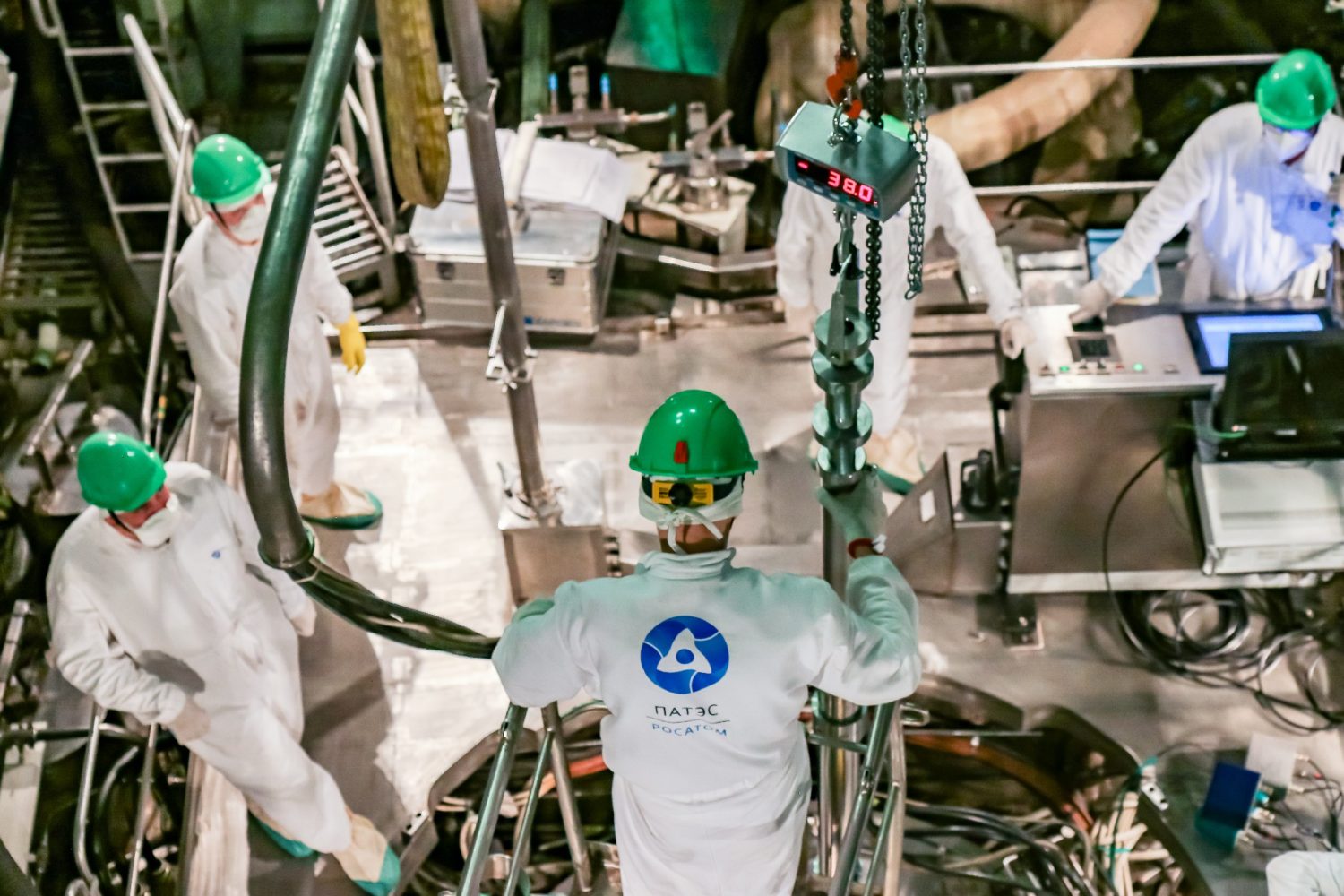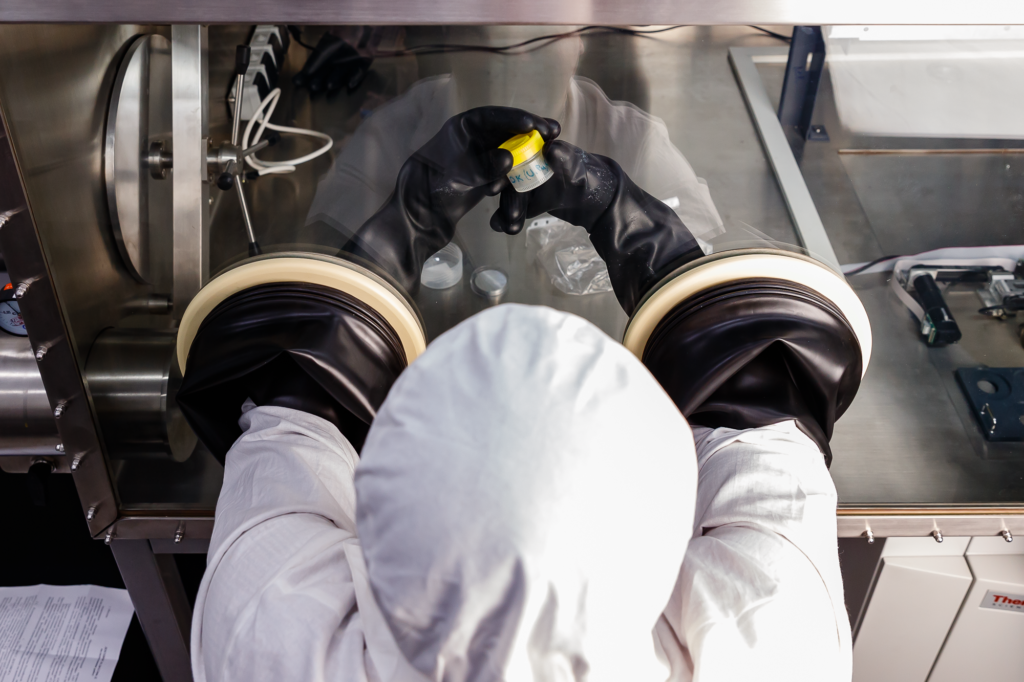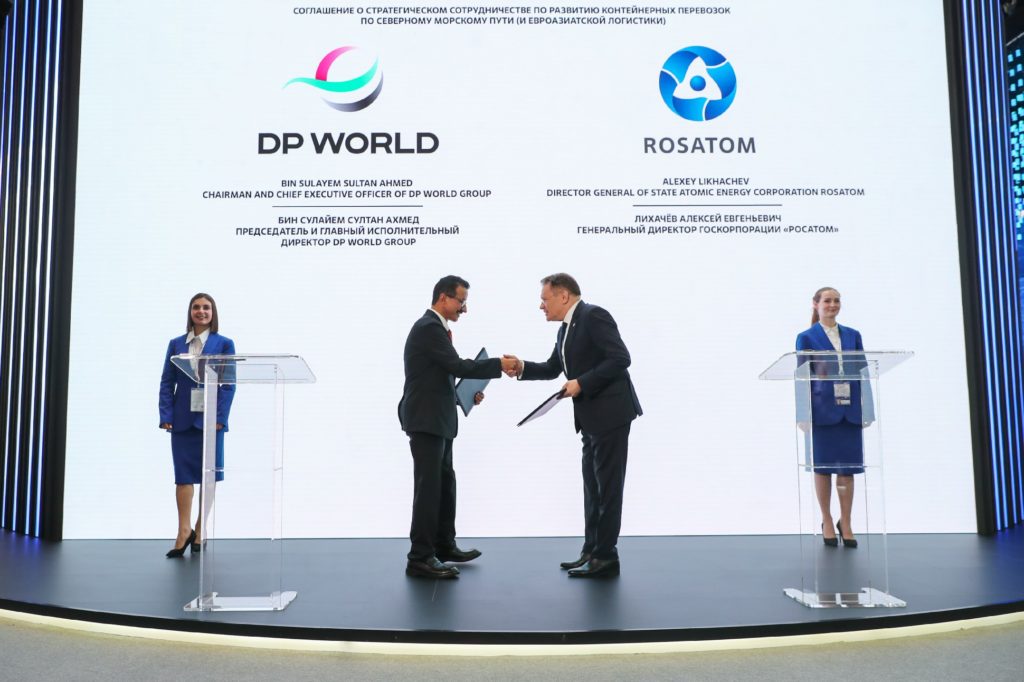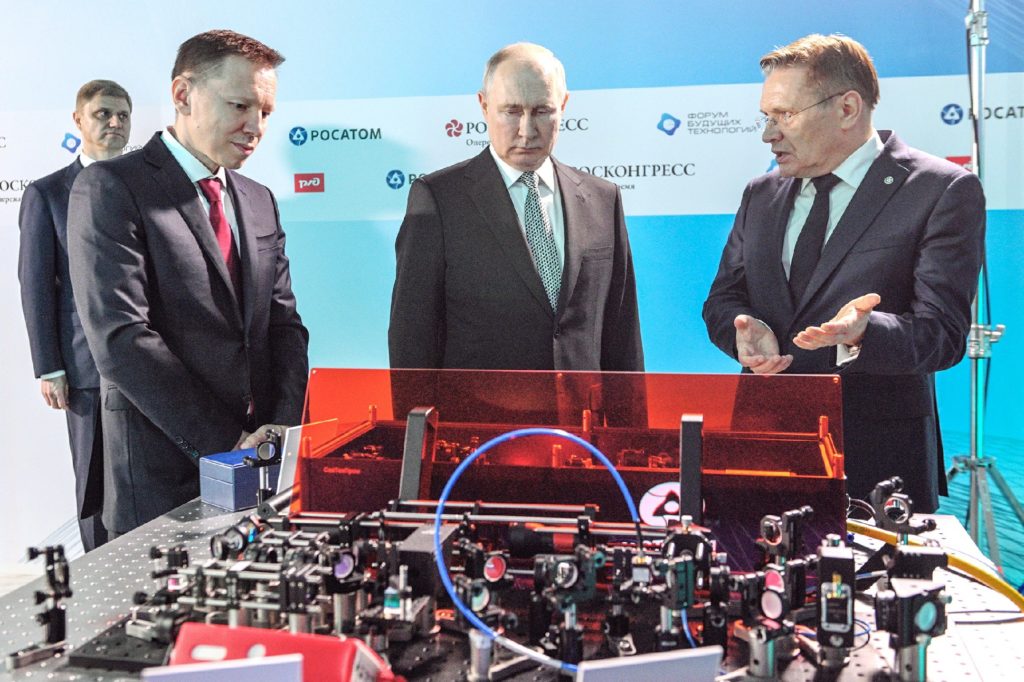
Power of Action: Year 2023 in Review
back to contentsIn 2023, the Russian nuclear corporation either launched or pushed notably forward a number of its projects that are of great importance for individual countries and industries, and for the future of nuclear technology in general. Here is our account of last year’s achievements made by Rosatom.
Improving access to electricity
The commissioning of Belarusian NPP Unit 2 with a Generation III+ VVER‑1200 reactor was a central event of 2023. The nuclear station was transferred to the customer and has been operating successfully. Nuclear power made 25 % of the country’s energy mix in the reporting year to reach 40 % in the future.
In May, first concrete was poured for the basemat of El Dabaa Unit 3 in Egypt. In August, the Egyptian Nuclear and Radiological Regulatory Authority issued a construction license for the fourth power unit. Core catchers, each a centerpiece of the passive safety system, were installed at the first two units.
In April and October, fresh nuclear fuel was delivered to the Akkuyu NPP in Turkey and the Rooppur NPP in Bangladesh, respectively. This means that the two countries joined the ranks of emerging nuclear nations. The delivery of nuclear fuel was praised by the heads of the states.
In August, the Hungarian project owner Paks II Nuclear Power Plant Ltd published a notice of amendments to the Paks II NPP construction contract to signal the project transition to the main construction phase.
Closing the nuclear fuel cycle
Mixed uranium-plutonium oxide (MOX) fuel rods for VVER reactors were loaded into a research reactor for in-pile tests. Following a series of irradiation experiments on the new fuel, Rosatom researchers will justify the cost efficiency and safety of its use in VVER reactors. These reactors are a backbone of the Russian nuclear power sector and also in wide use abroad. For now, Russia produces MOX fuel for fast neutron reactors only. MOX fuel for VVER reactors is another step towards closing the nuclear fuel cycle.

One more step towards the same goal is the production of pilot MOX fuel assemblies containing americium‑241 and neptunium‑237. These minor actinides belong to the most toxic radioactive elements created in the process of irradiating nuclear fuel. The pilot fuel assemblies will be loaded into the reactor in 2024.
The third step is a 100 % MOX fuel core of the BN‑800 reactor at the Beloyarsk NPP.
What is more, the 100,000th fuel assembly for VVER‑440 reactors was produced by Rosatom in 2023. There are 22 reactors of this type in the world, including five in Russia and 17 in other countries. VVER‑440 power units account for half of power production in Hungary and for more than a half in Slovakia, in which Mochovce 3 with a VVER‑440 reactor was brought online in January 2023. Electricity prices in those countries are among the lowest in the European Union, according to European energy market regulators.
Another momentous event was the refueling of the world’s first floating nuclear power plant, Akademik Lomonosov.
Healthy life and food
Rosatom is a Top‑5 player in the global isotope market. For instance, its share in the cobalt‑60 market reached 30 % after the production of this isotope started at the Kursk and Smolensk nuclear power plants. Rosatom supplies all domestic needs for isotopes and ships them to over 50 countries, expanding the range and geography of supplies. In 2023, the Leningrad NPP obtained a license for the production of lutetium‑177, an effective substance for diagnostics and treatment of certain cancers, while the Leipunsky Institute of Physics and Power Engineering (part of Rosatom) increased the output of actinium‑225. Also last year, Rosatom began to supply technetium‑99 generators to Belarus and germanium‑68/gallium‑68 generators to India.
The Russian nuclear corporation is building a nuclear research and technology center (NRTC) in Bolivia. It includes, among other things, a pre-clinical cyclotron facility capable of producing 11 radioactive isotopes, including fluorine-18, technetium-99m, gallium-68, copper-64, zirconium-89, and iodine-124. Its capacity is enough for over 5,000 diagnostic procedures per year and makes it the largest cyclotron in Latin America. Another NRTC facility is a multi-purpose irradiation center capable of treating up to 70 tonnes of produce per day to extend its shelf life. Rosatom is also working to build multi-purpose irradiation centers in Uzbekistan and Bangladesh.
Northern Sea Route
The record-high cargo traffic on the Northern Sea Route (NSR) exceeded 36 million tonnes in 2023. Transit freight also stood at its highest ever, having reached 2.1 million tonnes. Oil was the primary transit freight on the NSR. Last year, also for the first time ever, two nuclear icebreakers, Taimyr and Sibir, escorted a 169,000 DWT Capesize ship with 164,500 tonnes of iron ore concentrate on board to Cape Dezhnyov. The voyage ended on September 6.

In June, Rosatom and DP World signed an agreement for the joint development of Eurasian logistics and container transit on the NSR. Later, at the COP28 Conference in the UAE, the parties signed a strategic partnership agreement to establish an international logistics operator.
New energy
In June, a framework agreement was signed with the Bolivian state-run company Yacimientos de Litio Bolivianos (YLB, Bolivian Lithium Deposits) to build a lithium carbonate production facility in the Salar de Pastos Grandes in Bolivia. A similar agreement for the lithium production in the Salar de Uyuni was signed in December.
Science of the future
In February, Rosatom’s multi-purpose fast research reactor project was included into the international BRICS GRAIN (Global Research Advanced Infrastructure Network) platform. Initiated by Russia, the platform provides BRICS researchers with access to megascience projects.

In July, researchers presented a 16‑qubit trapped-ion quantum computer. It can already be used to make calculations, for example, to model the dependence of potential energy of two atoms on the distance between them.
Year by numbers
33 projects in 11 countries in Rosatom’s pipeline
22 projects in 7 countries in the construction phase
Approx. USD 14 billion in expected revenue




